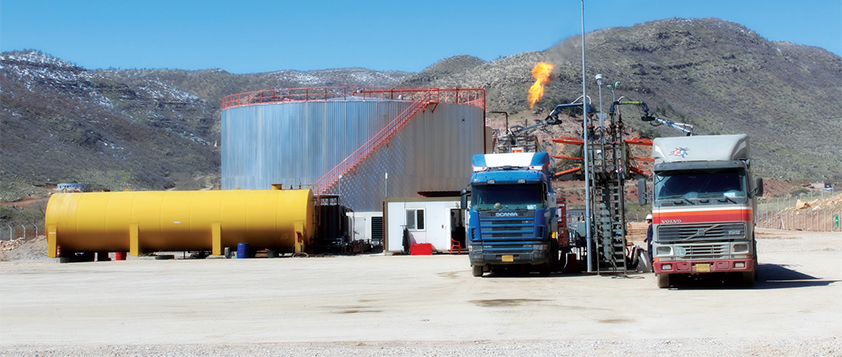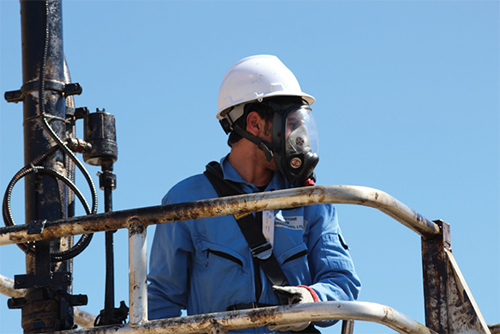
Gulf Keystone Petroleum: Leading Oil Production in Kurdistan with Ambitious Expansion Plans
Reaching new frontiers
An independent oil and gas exploration and production company with an ambitious forward-thinking strategy in regards to its operations in the Kurdistan region of Iraq, Gulf Keystone Petroleum commands a coveted position in this prolific, underexplored oil province.
Incorporated in Bermuda in 2001 and listed on the Alternative Market of the London Stock Exchange since 2004, the company today holds interest in four adjacent and on-trend blocks, Sheikh Adi, Ber Bahr, Akri-Bijeel and world-class discovery, Shaikan. It operates the Shaikan and Sheikh Adi blocks.
Shaikan has proved to be one of the most significant discoveries in the world in the last ten years and is a giant field by any measure. From discovery in August 2009 to today, the estimated size of the Shaikan resources has grown by an incredible 375 per cent. Furthermore, the company believes that its already impressive range of gross oil-in-place resources of between eight billion and 13.4 billion barrels will increase even further as new wells are drilled and Shaikan deep prospects are de-risked.
As part of its 2012/2013 high impact exploration and appraisal campaign, Gulf Keystone Petroleum has recently completed testing the Shaikan-4 appraisal well, which has achieved total maximum aggregate flow rates of 24,000 barrels of oil per day, making it the best well drilled by the company to date. At the same time it is also drilling its fifth and sixth wells on the Shaikan block, thus completing its appraisal programme of this massive structure. Later in the year Gulf Keystone Petroleum hopes to drill an exploration well that will target the deepest undrilled horizons in the deeper Triassic and Permian formations.
The Shaikan extended well test facility, which today is tied to the Shaikan-1 and Shaikan-3 wells-producers, first became operational in October 2010. Today this facility is producing over 5000 barrels of oil per day and it is anticipated that future test production from Shaikan-2 and Shaikan-4 will significantly increase the existing production levels. Gulf Keystone’s technical team is currently working on the upgrade of the existing test production facility and designing an additional one in order to produce 10,000 barrels of oil per day later in 2012 and gradually increasing this test production to 20,000 barrels of oil per day thereafter.
 In order to accommodate medium to long-term production targets, Gulf Keystone Petroleum plans to build a 122 kilometre long pipeline capable of transporting at least 440,000 barrels of oil per day from the Shaikan field to export markets via the Kirkuk-Ceyhan export pipeline. It calculates that building the pipeline link would take about a year and it is estimated to be in place after mid-2013, when the company also plans to start drilling development wells on Shaikan.
In order to accommodate medium to long-term production targets, Gulf Keystone Petroleum plans to build a 122 kilometre long pipeline capable of transporting at least 440,000 barrels of oil per day from the Shaikan field to export markets via the Kirkuk-Ceyhan export pipeline. It calculates that building the pipeline link would take about a year and it is estimated to be in place after mid-2013, when the company also plans to start drilling development wells on Shaikan.
In other news, it was in August 2011 that Gulf Keystone Petroleum announced a significant range of preliminary resources for the Sheikh Adi block, which it operates. It has identified a location for the second well on Sheikh Adi, which is estimated to hold between one and three billion barrels of gross oil-in-place, and it now plans to drill Sheikh Adi-2 in June 2012. An extensive exploration and appraisal programme continues at the Akri-Bijeel block operated by MOL and the first exploration well on the Ber Bahr block, operated by Genel Energy, is being tested with results expected in the summer.
Gulf Keystone Petroleum’s recognised operating record in the region since 2007 is a result of a long-standing partnership with the Kurdistan Region of Iraq. The reason for its discovery of the biggest oilfield in the recent history of the region resides in the motivation of the Kurdistan Regional Government to search for oil and maximise the resource for the benefit of the regional and national economic development. In particular, the effort of the Ministry of Natural Resources to develop an attractive and transparent investment environment in the oil and gas sector has resulted in the entrance of large multinational oil companies to the region in 2011. It is widely expected that this process will continue in 2012, reinforcing the company’s early belief in the Kurdistan story and establishing Shaikan as a benchmark for other fields in the region.
By implementing local employment and training initiatives, Gulf Keystone Petroleum strives to conduct its operations in the spirit of co-operation with local communities. In the last year, it has organised training courses in the English language, IT and driving skills for a significant number of Erbil-based personnel and has funded a number of scholarships for short-term and long-term technical courses in the UK for its employees from Kurdistan.
Gulf Keystone Petroleum entered the Kurdistan Region of Iraq in 2007 and today the ultimate goal of its forward strategy remains to realise the full potential of the giant Shaikan field, which is eagerly awaited by the company’s shareholders, the international oil and gas industry and the people of Iraq alike. Future production volumes from Shaikan are projected to be more than 400,000 barrels of oil per day and such numbers will have a major impact on world oil prices. Therefore it is important for every player to recognise how critical export and pipeline infrastructure will be in order to accommodate this future production from the Kurdistan Region of Iraq.
Gulf Keystone Petroleum Ltd
Services: Exploration and production